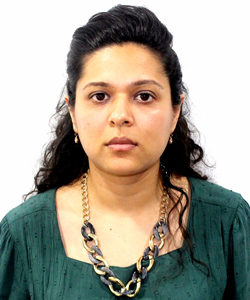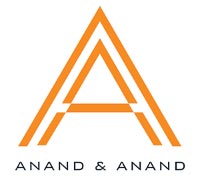As brand identification moves beyond traditional realms and into ever more interesting spheres of influence, staying abreast of trends and changes to law in the Asian region is imperative
Navigation:
India | Philippines | Sri Lanka | Taiwan
The evolving world is undergoing a silent intelligence revolution. India is not far behind and interesting trends are developing. The following highlight a number of trends and suggests how they may evolve.
The government is an entrepreneur

Senior partner & head of trademarks, contractual & commercial IP
Anand & Anand in Noida
Tel: +91 120 4059300
Email: safir@anandandanand.com
The Indian government, with the aim to nurture entrepreneurship in the country, has taken a huge leap and become the harbinger of the ‘Make in India’ and ‘Digital India’ campaigns.
In its quest to encourage innovation and ownership, the government is leading the mandate and has decided to become an entrepreneur. Successful registrations in key trademarks have been acquired, such as: ‘Make in India’ – the Department of Industrial Policy and Promotion, Ministry of Commerce and Industry, Government of India; and Incredible India – the Ministry of Tourism, Government of India.
These tag lines and slogans have become inextricably linked with the Indian government. This entrepreneurial mindset is bound to percolate to the judiciary as quasi-judicial bodies such as the Trade Marks Office (TMO) become more amenable to creating a progressive environment on acceptance of trademarks, suggestive trademarks, slogans, tag lines, etc.
Branded patriotism

Partner
Anand & Anand
in Noida
Tel: +91 120 4059300
Email: twinky@anandandanand.com
Leading brands are moving towards a patriotic approach in their brand promotion and marketing campaigns. Hero MotoCorp recently released an advertisement featuring the ‘HeroSalutes’ hashtag with a theme based on honouring Indian soldiers. PayTM had also released an ad campaign last year around Independence Day, which was centered on combating corruption in India.
The outcome of such country-centric impactful advertising is that emotional quotient through CSR activities is converting into brand equity and, hence, getting protected.
Yin-Yang
The TMO in India faces an ambivalent situation. On one hand, the TMO has been on a quest to clear its pendency, not particularly the historic backlog but more in the nature of expediting and processing the prosecution of trademarks in a more organized fashion. On the other side, in its zest to expedite, the TMO has been delegating the critical task of hearings to examiners who have been refusing various trademarks. The refusals are not in the nature of speaking orders, and hence, the process of getting relief appears an uphill task.
Such actions are being challenged in the High Court, and the authors believe it is a temporary situation. Eventually, the courts will streamline the process and reinforce order.
Return to national filings
The Madrid Protocol prescribes a timeline of 18 months, which has to be adhered to. In multiple cases, trademarks are under challenge in opposition proceedings in India, but due to the timeframe of 18 months lapsing from the date of filing of the trademark applications, these trademarks are being construed as deemed registered by the TMO. In the face of global competition, businesses cannot afford to take such risks with their vital IP.
Filing national trademark applications, thus, seems to be a safety net.
Prior adoption
The TMO has become strict with the nature of documents that are used to support prior adoption and use. This is a red flag for all foreign brands that have traditionally opted not to file for trademark protection in India, or postponed the idea of filing until the business acquires more maturity.
It is imperative for prior right holders to scout regions of interest and develop filing plans to secure business interest.
Well-known trademarks
Social and digital media have made the world a small place, and the reach of a brand to unknown parts of the world, and unknown consumers, has never been better.
India already had the concept of well-known trademarks, but has intensified its practice on declaration of trademarks as well known. A recent example of this is the declaration of the trademark TCS as well known. The courts in India recognized the power available to proprietors to obtain a declaration and directed that the option of filing petitions to seek a well-known declaration must be used, and also issued a direction to the registrar of trademarks to act on this quickly.
This opportunity is already being acted on by proprietors and will have more takers.
Intermediary responsibility, liability
Delhi High Court, in Christian Louboutin SAS v Nakul Bajaj and Ors, in its 2018 decision addressed the issue of intermediary liability. Darveys, a website, offers luxury brands for sale. Christian Louboutin SAS alleged that Darveys sells impaired products or counterfeits. The website also uses Christian Louboutin’s image and uses “Christian” and “Louboutin” as meta-tags.
Darveys contended that the products are genuine and they merely facilitate booking of orders. Products are sold directly by sellers and no after sales services or warranty is offered by Darveys.
The High Court analyzed the responsibilities of e-commerce platforms that actively conspire, aid or induce the commission of unlawful acts as opposed to situations for taking advantage of the safe harbour provision.
With the spread of multiple e-commerce platforms, this judgment has led to a profiling of such platforms and will have a positive impact on future exploiters.
Sensory trademarks
Businesses are creating customized experiences for the consumer, guiding their spending habits. This new wave of marketing has also paved the way for non-traditional trademarks that target the senses of touch, smell, sight and sound.
The economic effect of sensory marketing has been measured by Unilever’s Dove soap. Research consultancy Millward Brown estimates that the smell of the product contributes US$63 million to its annual US revenues, while touch accounts for US$34 million, and sight US$14 million.
Protection in non-traditional trademarks is a new trend. A recent example was when the TMO granted registration to the image of The Taj Mahal Palace Hotel in Mumbai.
This new breed of trademarks is here to stay.
Celebrity liability
Liability on celebrity endorsing has been made direct and extensive. India has seen instances where celebrities had to move the court to discharge their liabilities. M S Dhoni, the renowned cricketer, had to approach the Supreme Court of India to recover his dues after Amrapali Group, a real estate company, defaulted with its home owners, impacting Dhoni’s image as the brand ambassador.
Celebrities have become cautious during their contract negotiations.
Going local
Brands are moving towards a millennial approach and using local language to create a unique brand identity aligned to a region. The model has been successfully followed by international brands like Burger King and McDonald’s, which have developed localized advertisements and menus to appeal to local taste buds.
India is a unique market with eclectic diversity that will be capitalized.
IP audits
The Securities Exchange Board of India has made it mandatory for companies to disclose the status of their IP in the Red Herring Prospectuses.
With this, IP audits have become critical to gain investor trust.
Advertising compliance
The Advertising Standards Council of India has started its own actions against brands for false, exaggerated or disparaging claims in advertisements, with substantial complaints issued last year. Seeking legal counsel has gained traction, as it also adds to reputation management.
Advertisements are corporate assets and it is vital to ensure that they are not just legally compliant, but creates a harmonious conversation between marketers, advertisers and lawyers to produce a value-driven campaign.
Damages in India
Courts in India are increasingly awarding damages in IP disputes. It has become vital for promoters to ensure diligence and pre-empt what may impact the financials of a company.
This has increased correlation between IP and market capitalization; the impact on stock markets has also started a conversation on overlaps with corporate governance.
Extension of deadlines
The Intellectual Property Appellate Board recently digressed while interpreting the Trade Mark Rules, 2017, on seeking extensions for filing evidence a general clause for extending deadlines where no time limit is specified.
This is a positive move for proprietors and allows time for collation of documents.

Anand & Anand
First Channel Building
Plot No 17 A, Sector 16 A
Film City, Noida 201301 (UP) India
Tel: +91 120 4059300
Fax: +91 120 4243056 (058)
www.anandandanand.com



























